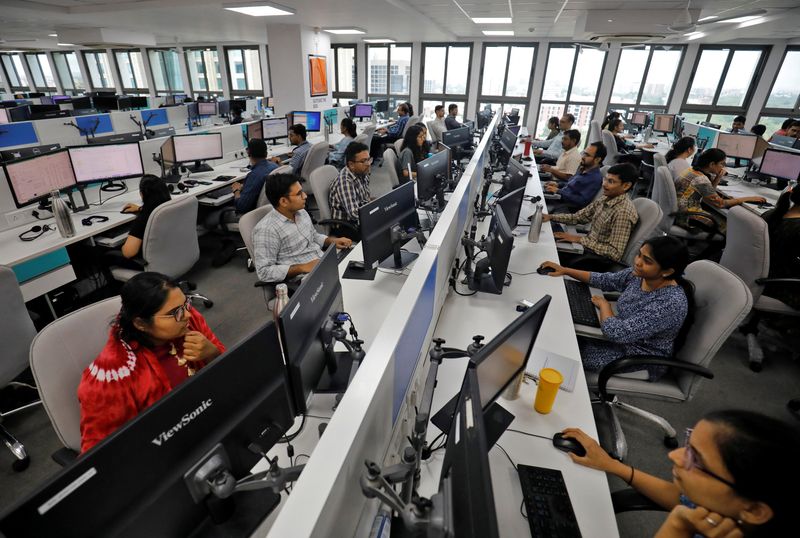India’s business growth at three-month high in July, PMI shows
2024.07.24 01:48
By Anant Chandak
BENGALURU (Reuters) – India’s business activity accelerated at its fastest pace in three months in July thanks to strong demand, especially in the services sector, according to a survey that also showed companies hired at the fastest pace in over 18 years.
The data reflected sustained growth in the private sector, which according to the government’s first budget since the national election will get incentives to improve skills and spur employment.
HSBC’s flash India composite purchasing managers’ index, compiled by S&P Global, rose to 61.4 this month from June’s final reading of 60.9, marking three years of expansion. The 50-level separates growth from contraction.
“The Flash Composite Output Index signalled continued robust growth in India’s private sector,” noted Pranjul Bhandari, chief India economist at HSBC.
“The rise in output in July was led by a further increase in business activity in the manufacturing sector, while the pace of expansion in services output also accelerated and remained well above its long-run average.”
Overall expansion was led by the dominant services industry, whose PMI rose to a four-month high of 61.1 this month from 60.5 in June. Growth in manufacturing was also robust, and the factory PMI increased to 58.5 from 58.3 – its highest since April.
The report said favourable market conditions, buoyant client appetite and enhanced technology helped the improvement in private sector activity. Both new business in the services industry and manufacturing orders remained robust.
Job creation rose at the fastest pace since April 2006, supporting overall business confidence at the start of this quarter, which eased to a seven-month low in June.
“Companies turned more optimistic in July, following a moderation in business confidence in June,” added Bhandari.
“We note that the rate of input cost inflation continued to trend higher in both sectors, which has driven firms to keep raising sales prices.”

Meanwhile, prices charged rose at the steepest pace in over 11 years but robust demand allowed firms to pass on lofty input costs from high material, transportation and labour prices, to their clients.
Higher prices could cloud the Reserve Bank of India’s interest rate outlook, which is focused on returning inflation to its 4% medium term target. The central bank is currently expected to cut its key policy rate next quarter.








